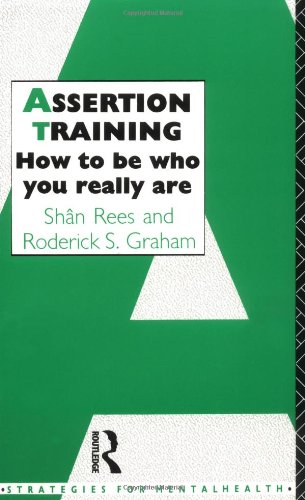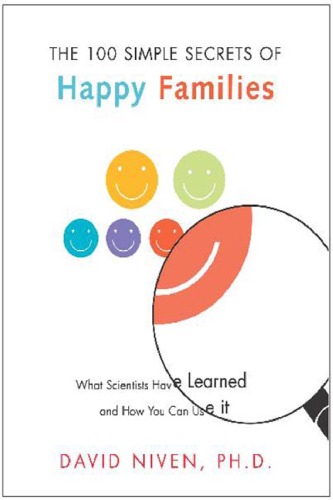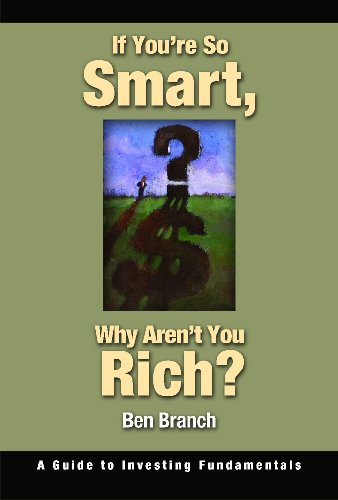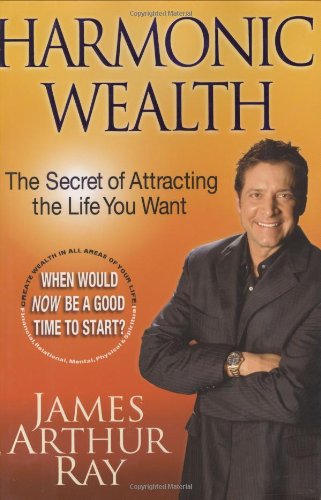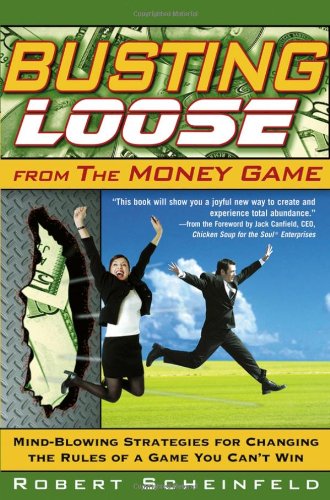موضوعات
آموزش و پرورش
ادبیات و زبان
پزشکی، دندانپزشکی و داروسازی
تاریخ و جغرافیا
داستان و رمان
دیگر
دین و فلسفه
روانشناسی
ریاضیات و آمار
سلامتی، تناسب اندام و رژیم غذایی
شیمی و پلیمر
علوم اجتماعی و حقوق
علوم زیستی و بیوتکنولوژی
فیزیک و نجوم
کامپیوتر و اینترنت
کتابهای کودکان و داستان
کسب و کار و اقتصاد
کشاورزی و دامپزشکی و غذا
معماری
مهندسی و فناوری
هنر و تئاتر
محصولات
The Abs Diet: The Six-Week Plan to Flatten Your Stomach and Keep You Lean for Life - PDF
نویسندگان: خلاصه: Great-looking abs are more than just a way to support the mirror industry. In fact, strong abs and flat stomachs are the ultimate indicator of overall health-for both men and women. Great abs will help you live longer, sleep better, prevent back pain, and significantly improve your sex life! (And, hey, they don't look half-bad in the mirror, either.) Unfortunately, you could spend years on starvation diets and extreme exercise programs that never unearth those elusive stomach muscles.Or you could spend just six weeks with David Zinczenko, Editor-in-Chief of Men's Health magazine, on THE ABS DIET-an easy and effective program for everyone that is helping thousands of people lose weight, flatten their guts, banish post-pregnancy bellies, and become healthier than they ever thought possible. What's more, once on this revolutionary new diet you'll look and feel better than ever without deprivation dieting, counting calories, measuring foods, worrying about confusing phases-or ever feeling hungry!Sound impossible? Let David Zinczenko prove it to you. As editor-in-chief of the world's most important men's magazine, Zinczenko has devoted his career to helping people improve their lives through the latest and most well-researched health, nutrition, and exercise information available.Now, in the national bestseller THE ABS DIET, Zinczenko reveals his infallible formula that works for both men and women:>>The ABS DIET POWER foods: the 12 best foods (all part of an easy-to-remember acronym) that will naturally boost your metabolism so that you can strip away fat, build muscle, and look and feel great for life. (Bonus: Many of the Abs Diet Powerfoods are even-gasp-carbs!)>>SIMPLICITY: This low-maintenance program is easy to follow because there are no scales, no phases, no calculus-like formulas to compute, and no recipes that take a culinary degree to make. (One of the secret weapons: Satiating smoothies.) In fact, many of the dozens and dozens of delicious meals you can make take no more than a few minutes to prepare!INCENTIVE: The plan never leaves you hungry. Instead, it encourages you to eat (a whopping six times a day!), stokes your metabolism, and even lets you cheat now and then. ENERGY: Designed to help you build the lean muscle that and melt away that pesky belly fat, this full-body exercise program can be done at home in only 20 minutes, 3 times a week, with nothing more than a set of dumbbells! LONGEVITY: An easy-to-remember maintenance plan will help you maintain your flat stomach forever. Thousands of people are on THE ABS DIET, which can help you lose up to 20 pounds in six weeks-all while gaining pounds of muscle!-because it's easy to follow and even easier to stick to. THE ABS DIET also describes some of the stories of people who went on the program and had amazing successes. In those cases, these people ended up changing their waistlines-and their lives. THE ABS DIET is the best, last and only diet and nutrition plan that you will ever need.Read about how low-carb diets are making you fat, about how the food industry is putting secret fat bombs in your favorite foods, and about how you can fight back. You'll find out why 95 percent of all diets fail, and why THE ABS DIET is different.So how about joining on for a six-pack? Yours.- 12 "superfoods" that will change your life.- A simple maintenance plan to keep your abs from disappearingSix weeks to superior strength and sexy symmetry every man-and woman! -lusts after. Men's Health can show you how.Does It Really Take Seven Years to Digest Swallowed Gum?: And Other Questions You've Always Wanted to Ask (Is That a Fact?) - PDF
نویسندگان: خلاصه: It takes seven years to digest swallowed gum. A penny placed on a train track can cause a train to derail. The average human consumes four spiders per year while sleeping. You may have heard some of these common sayings or beliefs before. But are they really true? Can they be proven using science? Let's investigate seventeen statements about familiar items and everyday events and find out which ones are right, which ones are wrong, and which ones still stump scientists! Find out whether eggs will really stand on their ends during the vernal equinox! Discover whether it's true that you can swing 360 degrees on a swing set! See if you can tell the difference between fact and fiction with Is That a Fact?Selecting Your Employer, A Guide to an Informed Pursuit of the Best Career for You (Improving Human Performance Series) - PDF
نویسندگان: خلاصه: Selecting and evaluating jobs and employers is a task for which few are well prepared, yet the process of changing jobs requires major personal decisions. Improving the outcome involves evaluating the job, the employer, and the community in a systematic and comprehensive manner to determine both desirable and undesirable factors. All employment decisions are made in the context of comparing one's present situation with alternatives. This book will provide the tools to evaluate a present or potential job, employer or community. Business consultant Gordon Bing draws on his years of experience to guide the reader to develop a plan of action, to identify critical factors such as personal goals, cultural factors, employment environment, job descriptions, company position, industry climate, and compensation and benefits that will result in a successful match for both the employee and the employer. Presents a practical and comprehensive approach for evaluating an employer, job offer, or employment situation This is the only career search and career development book that looks at the issue of evaluating the employer as a key aspect of job satisfaction, favorable transition, and successRed Fire Branding: Creating a Hot Personal Brand so that Customers Choose You! - PDF
نویسندگان: خلاصه: How do you create a hot personal brand and have customers for life? What is the key to making your brand synonymous with success? 'Red Fire Branding' focuses on how to implement branding techniques to make your brand sizzle and your name unforgettable. In 'Red Fire Branding,' Liz Goodgold directs her works towards the business-to-business market to help small business owners, entrepreneurs, sales professionals, or anyone who is looking to create an indelible image. She offers quick and easy techniques that business owners can learn today and implement tomorrow by presenting readers with immediate, actionable solutions coupled with in-the-trenches insights delivered in a concise and cut-to-the-chase format. This book will spark new ideas that will drive sure-fire results. Learn the super hot secrets and blistering business concepts that have brought success to athletes, authors, consultants, newsmakers and even chefs. Discover how other entrepreneurs and executives have managed to add spice and interest to their brands while winning and keeping new customers and clients. Buy this book today!What You Don't Know about Schools - Original PDF
نویسندگان: خلاصه: This book brings together leading scholars of education to analyze different ways of looking at school. Steinberg, Kincheloe, and a group of contributors argue that the goals of education are reduced by a superficial public conversation. Simplistic political views and strategies for reform ignore the complexity of the educational process. The debate over the purpose of schooling is lost. This dynamic produces an impoverished debate about the role of schools in a democratic society, the nature of learning, what constitutes good teaching, diverse ways of evaluating educational excellence, and a myriad of other pedagogical issues. What You Don't Know About Schools gives professors, students of education, and teachers new strategies and goals for the future of schooling in the United States.Assertion Training: How To Be Who You Really Are (Strategies for Mental Health) - PDF
نویسندگان: خلاصه: Shan Rees and Roderick Graham show how assertion techniques can be used to enhance your daily life and to improve effectiveness both personally and professionally. A wealth of examples and exercises helps you to assess and improve your own assertion skills - how to get in touch with what you want, how to value your own opinions, how to deal with rejection and criticism, and how to build self-esteem and confidence.100 Simple Secrets of Happy Families : What Scientists Have Learned and How You Can Use It (100 Simple Secrets Series) - PDF
نویسندگان: خلاصه: Steve Burkett likes to talk about families—his family, your family,families in general. “Just think for a minute about the kinds ofmessages we receive every day,” says Steve, a retired sociologist, aparent, and a grandparent. “We read that people are workinglonger hours to avoid being with their families. We hear thatdivorce rates have hit a record high. Extended families don’t existand elderly family members in need are cast aside. Meanwhile,children are out of control, doing things that boggle the imagina-tion. It’s in the newspapers, the TV news, the shows and movies wewatch, the songs we listen to. We have a family-averse popular cul-ture, and we’re in danger of having a family-averse culture.“We wouldn’t be here without families. We literally would not behere. And yet the message out there is ‘run and hide.’ It’s like anall-encompassing public health warning—except it’s about the illsof marriage, of sibling relationships, of dealing with parents, ofdealing with children. I just saw a study with experts referring topeople in their early twenties as being in an extended adolescence,while they are now calling adolescence an extension of toddleryears, which is like saying the twenties are an extension of the ter-rible twos.“A family structure is as old as recorded time,” adds Steve, “andyet here we are, theoretically advanced in so many ways, and wehear about family life as if it’s some kind of extreme, dangerousxisport like cliff diving. And the worst of it is, for far too many peoplethat’s true. Too many people feel their family life is out of controlor just plain unfulfilling.”Polls confirm that many people share Steve’s concerns. Whenasked whether they thought morals were improving or declining,eight out of ten said declining. When asked why, their most fre-quent response was the instability of marriage and family.Steve says that the long-held expectation that every new genera-tion would enjoy advantages unknown to previous generationsfeels like it is being turned on its head. “We may have more free-dom than ever, more ability to choose our paths in life, but ourfamily life is going backward,” he says. All this at a time when“families are more important than ever.”If You're So Smart, Why Aren't You Rich?: A Guide to Investing Fundamentals - PDF
نویسندگان: خلاصه: Football is often described as a game of inches. First downs, scoring, and in/out of bound decisions that can determine the outcome of the game may even come down to fractions of an inch. Investing is similar: the difference between outperforming or underperforming the market may be a few fractions of a percentage point. As Ben Branch succinctly states, successful investing, defined as outperforming the market averages, is not easy. And yet it is very much a game worth playing, particularly if you win. The key to being on the winning side is to understand the fundamental principles of investing—what it is and how it works—before making any decision. In this highly practical, non-technical guide, Branch introduces the reader to stocks, bonds, options, mutual funds, real estate, futures, and all of the other basic elements of the market. He debunks popular myths and misconceptions about investing and shows you how to avoid mistakes in order to invest wisely. An extensive glossary, definitions and examples, and lists of dos and don'ts will make this book a handy resource for the novice as well as for seasoned investors looking to take their game to the next level.In this highly practical, non-technical guide, Branch provides the building blocks of a multi-dimensional investing approach. First, he reviews the principle of compound interest, the foundation of all investment strategy and performance. Then, arguing that successful investing is a function of three types of activities—selection, timing, and execution—he introduces the reader to stocks, bonds, options, mutual funds, real estate, futures, and all of the other elements of the market. In addition to covering well-known investments in detail, he explains lesser-known opportunities, such as bankruptcies and takeovers. Special topics include the effects of macroeconomic trends and the subtleties of timing for maximum advantage. He debunks popular myths and misconceptions about investing and shows you how to avoid mistakes in order to invest wisely. An extensive glossary, definitions and examples, and lists of dos and don'ts will make this book a handy resource for the novice, as well as for seasoned investors looking to take their game to the next level.Harmonic Wealth: The Secret of Attracting the Life You Want - Original PDF
نویسندگان: خلاصه: Are you ready to transform your current thoughts, beliefs, and assumptions?? Are you ready to shatter the illusion that it's not "spiritual" to want a fit body or financial wealth? Are you ready to create outrageous results in every single area of your life? You're in the right place. Harmonic Wealth will propel you to where you want to go. This practical, results-based book will help you to push beyond your self-imposed limitations and show you how to get past all the reasons you think you can't have what you want. Struggling to know what you want? That doesn't mean you're not perfect, it just means you're ready for a shift. And that's exactly why you picked up this book. The result of more than twenty years of study and practical application by World Thought Leader and featured expert for The Secret, James Ray's Harmonic Wealth is based on extensive study of ancient wisdom traditions, cutting-edge findings in quantum physics and other scientific fields, not to mention years of hands-on, hard-won experience. Let this sought-after teacher show you what he's discovered about the secrets of attracting more than you've ever thought possible.? Learn how to: Heighten your creativity, intelligence, intuition, and mental functioning. Deepen your personal relationships and ramp up your ability to attract the people you want in your life. Achieve financial freedom. Maximize your health and energy, and amplify your physical strength. Free yourself from unconscious limitations.Vanquish the fears that have kept you stuck, kept you from knowing and owning that you deserve the best. If you've been having trouble with the Law of Attraction, you'll quickly learn the missing keys. Harmonic Wealth will reveal the formula for success in the Five Pillars: financial, relational, mental, physical, and spiritual. You'll see why having anything less than success in all of Five Pillars will never bring you true wealth, and you'll learn how to go 3 for 3 . . . how to have your thoughts, feelings, and actions working together in complete alignment. With these factors firing together, you'll create everything you desire and deserve. Harmonic Wealth encourages you to get real and get creative about how to achieve your goals . . . and then walks you step by step through the blueprint for their attainment. Stop playing it safe. Stop living in fear. Start living in harmony right now, and know that everything you want is within your reach.Busting Loose From the Money Game: Mind-Blowing Strategies for Changing the Rules of a Game You Can't Win - PDF
نویسندگان: خلاصه: Real people, real transformations!"Absolutely amazing! It completely shifts your paradigm for life. One of the most wonderful things about it is that the results are immediate. My whole perception and relationship to money has undergone a major, substantial change."—Chris Attwood, writer and teacher, California"I've spent most of my life trying to figure out what's true and what's real. I have to say I now have a clear glimpse into what it really is."—Tom Hill, Colorado"Before Busting Loose from The Money Game, I was very unhappy and frustrated in my life. I was driven to find more ways to make money. I changed jobs, cities, countries, went back to school, read books. Financially, the stress was causing anxiety attacks and migraines so severe I stayed in bed. The joy I feel now is priceless. Money is there when I need it, in the amount that's needed, no matter what occurs (car repairs, unplanned trips, etc.). It's absolutely amazing!"—Suresh Thakoor, Texas"As a retired professor on a fixed and limited income, I always lived from a tight budget and felt compressed by it-especially at the end of the year. I don't use a budget anymore and have opened up new streams of income that were always closed to me in the past."—Howard Rovics, Connecticut"It opened a whole new dimension for me and shifted my perspective on life completely. I especially love how practical it is. The application is so simple, so effective . . . and fun!"—Doris Kahle, Hagen, Germany"I'd had a lot of success in the corporate arena, made a ridiculous amount of money and lost a ridiculous amount of money. But I was caught in a cycle of making it, losing it. I needed to break that cycle-for myself and my family-and this gave me the keys to do that. Busting Loose from The Money Game opened a window I had no clue even existed. This is very cutting-edge, a revolutionary approach to unwrapping yourself from limitations. If you're not satisfied with where you are financially and you're concerned about your future, get this book!"—Ben Coleman, Texasآیا کتاب مورد نظر هنوز بر روی سایت قرار نگرفته است؟ جای نگرانی نیست! کافی است بر روی گزینه سفارش کتاب کلیک کرده و درخواست خود را ثبت کنید. در کمتر از چند ساعت کتاب شما را آماده خواهیم کرد.





